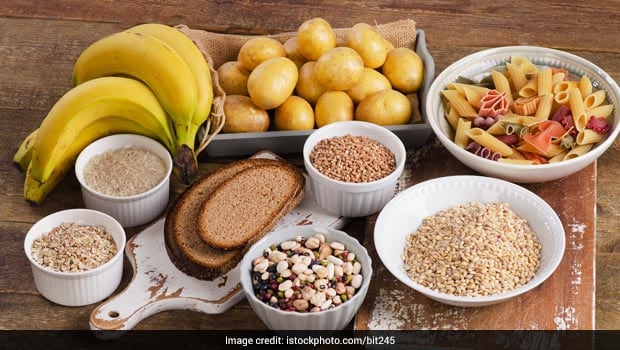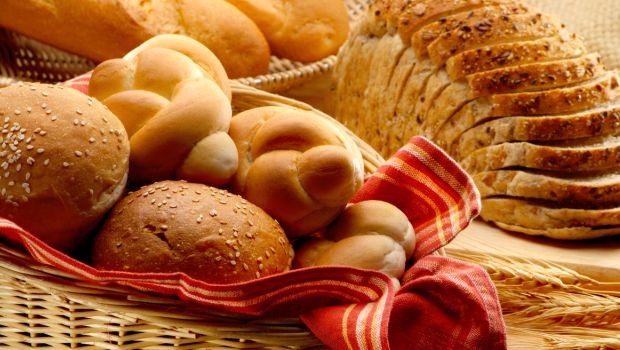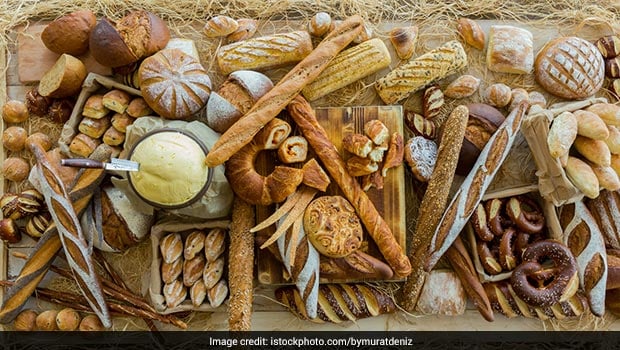Unfortunately, carbohydrates have constantly been under the scanner for perpetrating weight gain in people. Many think that going 'low on carbs' will yield a sudden drop in kilos - which it will - but only for a short span of time. Let's understand that Carbohydrates are one of the vital food groups needed by the human body to function, and at no point should they be completely cut out from one's diet. But then why are they linked to weight gain so often?

Carbohydrates
First things first, carbs are not essentially responsible for weight gain, the only reason why this food group has been linked to weight gain is because we tend to consume an excess of carbs, while compromising on the intake of other food groups like proteins. This, when coupled with an inactive lifestyle, leads to weight gain. By now, we all know that close to 50-60% of our daily calories must be sourced from carbs, protein come next at 20-25% and the remaining should be sourced from fats. In most cases, our diets end up going overboard with carbs and fats through excessive intake of refined and processed foods.
Why are carbs important
Carbs are the primary source of energy that our body requires to carry out various essential processes. Our brain chiefly uses glucose derived through carbs to give instructions to the rest of the body and execute various processes. Right from hormones regulation, fat metabolism, blood circulation, cell and DNA repair and growth to pumping of the heart, breathing among others, all these and many other physical processes happen with the help of energy derived from carbs.
What happens when you cut down on carbs?
Simply put, the body will starve.
Our contemporary diets are loaded with carbs; experts suggest that an average adult consumes more than 50-60% of daily calories via carbs, nearly 80% from carbs at best. In such a situation, cutting down on carbs and upping your protein and fat intake makes sense, it is only to facilitate going back to what one must actually be eating. Cutting down on carbs drastically will result in weight loss, but a temporary one, as soon as you are back to your regular dietary pattern, the lost kilos will reinstate themselves. "If you are cutting down on carbs, ensure that you are upping your protein intake which should not account for more than 40% of daily calories consumed," shares Gaurav Sharma, Fitness Manager, Anytime Fitness Studio, Jangpura, New Delhi.

Looking to lose weight? Cut back on pasta
"Your body will not function properly if you go too low with carbs which is the primary source of energy for the body. Too much of protein consumption and low carb consumption will lead to Ketosis wherein the body may start producing kidney stones," explained Dr. Ritika Sammadar, Clinical Nutritionist with Max Super Specialty Hospital, Saket, Delhi.
Cutting back on carbs will leave you energy deprived, as a result of which hunger pangs will be more frequently occurring and severe in nature. This will result in weight gain. Carbs help in regulating blood glucose levels, lack of which will mess with your blood sugar levels and trigger hypoglycemia. You will end up feeling fatigued, tired, weak, confused and super hungry; your metabolism and stamina will pay the price, taking a severe hit.
The choice of carbs matter
Carbohydrates are categorized into simple carbs and complex carbs. Simple carbs are the ones derived from sugar and items that have naturally occurring sugar in them. Complex carbs are essential to health maintenance; these would include starches and fibre-rich items. Whole grains and cereals are therefore your best bet; sugar and sugar laden items should be avoided to initiate weight loss. "If you are looking to lose weight don't ever shun carbs. You can always opt for fresh fruits, vegetables and items with low glycemic index. Go easy on refined items, sugary foods, bread pastas and cookies," shared Shilpa Arora ND, Nutritionist and certified Macrobiotic Health Coach.

Breads are loaded with carbs
Your choice of carbs is something that matters. It needs to be understood that banishing carbs from your diet will only hamper your health. You need to make smarter food choices, substitute bad carbs with the good ones. If you decide to cut down on breads and pastas, rice and chapatti then increase your fibre intake from other dietary sources and cut back on sugar and refined and processed items. Legumes, lentils, beans, fresh fruits and veggies can be included in your daily diet. Exercise portion control and limit your calorie intake to shed pounds easily. Regular exercising is absolutely essential to reduce, regulate and maintain weight.
Multiplying your weight by 24 will give you the number of calories needed daily to maintain your current weight, 50% of which should be sourced from carbs. Every gram of carbohydrates contains around 4 calories.
Consult your medical expert or a certified nutritionist to learn more about carbohydrates and its role in your regular diet and well-being.









